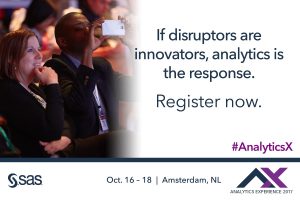In the first half of 2017 and in my only domain – which is marketing – an announcement set the tone for a major change. How not to be stunned when “Coca-Cola ditches global CMO role in leadership shake-up”?
 If there is only one product you can find anywhere on the globe isn’t it a Coca Cola? For any marketer this is THE brand: you start studying it at business school and never stop learning from it your whole life. To the least, Coca Cola’s announcement of getting rid of its global chief marketing officer made the buzz last spring, echoing last year forecast from Forrester that at least 30 percent of CMOs would be canned this year.
If there is only one product you can find anywhere on the globe isn’t it a Coca Cola? For any marketer this is THE brand: you start studying it at business school and never stop learning from it your whole life. To the least, Coca Cola’s announcement of getting rid of its global chief marketing officer made the buzz last spring, echoing last year forecast from Forrester that at least 30 percent of CMOs would be canned this year.
While stunning, this evolution is not limited to the marketing domain. Digital transformation seems to have finally made big indents in corporate structures. No one single leader or team can have the skills required to digitally transform the business, deliver data-driven customer insights, integrate and deliver customer experience. Growth and development can only come from co-creation.
It doesn´t stop there. According to numerous evangelists, artificial intelligence may render a whole class of customer-judging personnel (i.e. marketing people) largely obsolete. Though long associated (only) to creativity, marketing is impacted by AI like any other domain. “Is there a risk that almost half of the activities are automated if we adapt current technologies?” asked a McKinsey survey a year ago. Or even worse: that “My Marketing Director will be an algorithm” as per the book published by Stéphane Amarsy in February 2017.
Can marketers by replaced by algorithms?
Undoubtedly by being able to generate once-unimaginable volumes of data – from all sources and all nature – as well to program machines to implement, learn and improve we now have both the fuel and the engine for AI. Most famous of the marketing robots are currently chatbots, greatly illustrated by the behemoth Facebook: are you talking to a human or a bot? If you can’t tell, then the bot is working well. Such jobs as community manager or e-reputation managers – which by the way did not even exist 15 years ago – may simply disappear in the next five years.
Yet, as of today, algorithms can only reproduce rules and decisions based on an observation. As stated in Oliver Schabenberger’s recent blog post, “We are far from creating machines that can think or behave like a human. The trendy thing is to label everything AI that does something remotely clever or unexpected, but in reality, it is not AI … Intelligence requires some form of creativity, innovation, intuition, independent problem solving and sentience … There must be a disruptive technology shift to get us to true AI. I do not think we have found the solution, yet – but we are looking for it.”
How can marketing adapt?
For more than 20 years, I have been leading marketing teams in their transformations. I believe today that our role is more to adapt rather than predict, to observe and test rather than decide and implement, to energize and network rather than organize. Attending insightful analytical conferences has become a must to co-shape the future.
 Analytics Experience in Amsterdam offers the opportunity to share views and opinions for us to co-shape the future. Artificial Intelligence is of course top of the agenda as the hippest as well as most controversial topic of the year: “Artificial intelligence: Separating the reality from the hype” by Oliver Schabenberger, SAS Executive Vice President & Chief Technology Officer and key speaker at Analytics Experience 2017.
Analytics Experience in Amsterdam offers the opportunity to share views and opinions for us to co-shape the future. Artificial Intelligence is of course top of the agenda as the hippest as well as most controversial topic of the year: “Artificial intelligence: Separating the reality from the hype” by Oliver Schabenberger, SAS Executive Vice President & Chief Technology Officer and key speaker at Analytics Experience 2017.
Join me at Analytics Experience 2017 in Amsterdam and help co-shape your future as well! #AnalyticsX
